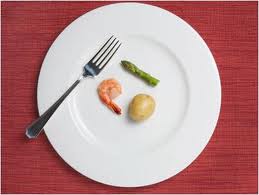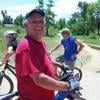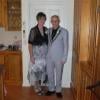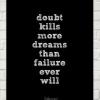Feeling Deprived?

Do you ever look at your plate of tiny bandster food portions and think, "That's not enough to keep a bird alive"?
That thought, or one like it, crossed my mind every time I sat down to eat in my early days as a bandster. Although I was eating tiny portions, losing weight, and feeling stronger and more energetic as each day passed, my brain kept whispering, "Something's wrong with this picture." Eventually I grew accustomed to those small portions, and now I rarely think about it unless someone else makes a comment about it - like my coworker who looks at my doll-sized lunch and exclaims, "I don't know why you even bother eating!"
ONE MEAL AT A TIME
Getting used to bandster food portions took me 6 or more months. At first I would look at my small plate with tiny portions of food on it and instantly feel deprived and sorry for myself. Never mind that the small portions were plenty of food for my banded stomach...they just weren't enough for my brain to accept. By paying very close attention to how I felt as I ate, I realized that small portions were indeed enough to quell my physical hunger and that I wasn't going to drop dead from malnutrition. Of course, the small meals didn't keep the hunger at bay for very long until I'd gotten enough fill in my band for a small portion of food to send long-lasting satiety messages to my brain. Since I was terrified that eating too much at one meal would hurt my band somehow, I stuck it out. My nutritionist's eating plan included 3 small meals and 3 planned, healthy snacks each day. I have to admit, I looked forward to each and every one of those meals or snacks.
It wasn't until after I'd reached my goal weight that I began to forget to eat and stopped looking forward to each upcoming meal as if it were a happily-anticipated Thanksgiving Dinner. Yes, it would have been nicer and easier if the long-lasting satiety had kicked in earlier on my WLS journey, but really can’t complain because later is better than never at all. Maintaining my weight loss means eating like a bandster for the rest of my life. So I had to work my way through one challenging year in order to enjoy 35 or more years as a healthy, normal-weight person with a small appetite. Seems like a pretty good deal to me. But then you know me, Little Miss Sunshine!
A MATTER OF PERSPECTIVE
One day when I was about 9 months post-op, I found myself in a restaurant looking at the food on someone else's plate and thinking, "Oh my God, look at genormous plate of food!" That genormous plate of food contained the same huge serving sizes I ate as a pre-op, but because of the mental adjustment I'd made, it no longer triggered the "Oh, goodie!" button in my brain. In part, it's a matter of perspective. Perspective refers to the appearance of objects (or subjects) in relationship to each other. When my personal perspective was to view a Thanksgiving dinner plate as my "normal" food portion, the genormous plate of food looked right to me. After 300 or so bandster meals and snacks, my perspective had changed so that a tiny portion was my "normal", and the genormous plate of food looked ridiculous, even overwhelming.
MASTERING THE FEAR OF FOOD DEPRIVATION
The issue of food deprivation is a topic that deserves more attention. If we don't learn how to deal with it in a healthy way, achieving weight loss and a healthy lifestyle is going to be a lot harder.
Fearing food deprivation is a basic instinct that drives every living organism. Every creature - human, animal, insect, you name it - survives by seeking food and shelter. So when I tell you that you need to master your fear of deprivation, I'm not telling you to deny this basic instinct by not eating when you're hungry. In fact, I'm telling you to respect it, that in fact you should eat when you're physically hungry. If trying to ignore physical hunger has been your strategy during years of dieting, it's time to try another strategy. You will never learn to recognize early satiety, or to experience and honor prolonged satiety, if you ignore your hunger. There's nothing intrinsically wrong with hunger. It's simply your body's request for more fuel. Food is fuel that you need, fuel that you deserve, fuel that you must have to stay alive and be healthy.
While you're re-training your conscious mind to respond appropriately to physical hunger cues, you may go on experiencing uncomfortable emotions about eating less. There's no shame in that. Talk about it with your support group, friends, and/or counselor, or write about it in your journal. Generally speaking, keeping your emotions bottled up gives them more power to hurt or control you. On the other hand, talking about them to the exclusion of everything else isn't helpful either and borders on the obsessive. When I need to talk or journal about something upsetting or painful, I give myself a time limit. The time might be a 50-minute counseling session, or 10 minutes of journaling. When the time's up, I go on to something else.
THE HALF-PORTION APPROACH
I talk a lot about this approach because it's a good way to prevent overeating, and I’ll repeat it now because the half-portion approach is also what made it possible for me to survive my fear of deprivation while my mind and body adjusted to eating small food portions.
Here's how it works.
1. Do not put serving dishes on the dining table.
2. In the kitchen (or wherever), measure out your planned bandster portion. Put half of it on a small plate (like a salad plate or the saucer for a tea cup), take it to the dining table, sit down, and slowly eat it, paying as much attention as possible to how you feel as you eat. (If you're eating in a restaurant, ask the server to bring a to-go box with your meal, put most of the food in the box, close it, and start eating what's left on your dinner plate.)
3. If your body gives you any "soft stop" signals, stop eating. You can throw the uneaten food on your plate away, or if that makes you anxious, put it and the other half of your portion (the one you left in the kitchen) in a storage container in the refrigerator, knowing that you can eat it later if and when you get physically hungry again.
4. If you finish the half-portion without getting any soft stop signals, go back into the kitchen, put the rest of your portion on your plate, take back to the dining table, and eat it, following the same instructions as in #3 (above).
5. If you get physically hungry again before your next planned meal or snack, go ahead and eat the reserved food portion. Eating it is not cheating, because you had planned to eat it, you measured it, and it's yours if you want it.
This approach helped me get used to eating small portions while staying alert to satiety signals without the overhanging fear and anxiety of food deprivation. Give it a try, and let me know how it works for you!
food deprivation! I think I feared this before I could even pull the trigger on whether I would have band surgery. But for me, it wasn't the how much I could eat, but how little my taste buds would be savoring those smaller portions. My mental image of just eating a palm sized portion of a chicken fried steak smothered in country gravy kept me from pulling the trigger for a year. It was the fear of a diminished culinary pleasure that made the decision difficult.
But the fear of dying young finally won the day ;o)
tmf
I grew up poor and the risk of food deprivation was very real. My brothers and I learned to grab food whenever it was available - just in case it wasn't there later. Unfortunately I forgot to to stop grabbing once the risk of missing out was gone.
the band has helped me to learn that I don't need what I see, that food will always be there if I need it. Food deprivation was a real fear that I had to unlearn
I grew up poor and the risk of food deprivation was very real. My brothers and I learned to grab food whenever it was available - just in case it wasn't there later. Unfortunately I forgot to to stop grabbing once the risk of missing out was gone.
the band has helped me to learn that I don't need what I see, that food will always be there if I need it. Food deprivation was a real fear that I had to unlearn
I'm impressed that you've been able to overcome fear of food deprivation with a background like that. I have an acquaintance who adopted 2 small children (sister & brother) whose food deprivation was so severe that their pockets were stuffed with cat kibble, and even now 2 years later, those kids stuff their pockets with ketchup packets, sugar packets, and the like when they're eating out with their new family.
food deprivation! I think I feared this before I could even pull the trigger on whether I would have band surgery. But for me, it wasn't the how much I could eat, but how little my taste buds would be savoring those smaller portions. My mental image of just eating a palm sized portion of a chicken fried steak smothered in country gravy kept me from pulling the trigger for a year. It was the fear of a diminished culinary pleasure that made the decision difficult.
But the fear of dying young finally won the day ;o)
tmf
Yeah, the dear of dying young was a pretty persuasive argument for me, too.
No food that I choose not to eat makes me feel deprived.
My soft stop is a feeling of fullness in the back of my thoart, if I ignore the next bite will be coming right back up. This has taken me months to learn, I used to spend a lot of time, PB'ing in the early days. I used to think I ate to fast but truly I was just trying to eat like the old me. ![]()
"Soft stops" can be subtle and may not happen consistently. Watch for a sigh, a sniffle, , a hiccup, a burp (or the need to burp), fullness in the back of the throat, the urge to take a deep breath, watering eyes, runny nose, excess saliva, the urge to cough or clear the throat.
I didn't realize that sniffles, watery eyes, runny nose or the urge to clear the throat were soft stop signs..I have been banded since Jan 2009 and never knew this. I just thought fullness, stuck feeling and burping were the only signs, that and the fact that I find myself eating faster and taking larger bites without chewing well. This helps me greatly with understanding my body response and meal control. I have lost 72 pounds so far, but now weight loss is more difficult. I have 29 pounds to get to my target weight. It is a struggle but I am worth it!
It has taken me 4-5 months to really internalize a soft stop, and stop eating! Thanks to Jean's book which I sometimes call my bible! Thanks Jean!
As usual I loved your article. I'm not being banded until the end of Sept and I'm gathering all your marvelous tips.
I'm going to work hard on journaling (never enjoyed journaling), but the 10 min get it off you chest rule seems easy enough. Also definitely using The Half Portion suggestion.
You're really going to get me through this WL journey Jean, Thank you so much!!!
Loved the article! My head always wants more than I should have. It's a daily struggle.
















tym4me 206
Posted
Jean i love the heading a matter of perspective. I used to LOVE to go out to eat thinking of where an what would i have would get me all excited. Also my dh an 2 sons loved this time together. However now when we plan to go out to eat i am just like ok lets go no excitement. Or if dh wants me to pick a place i push ut back to him because i want him to enjoy it. I know as for me i can just get a salad or Soup. If i do find something i like an can eat i am amazed at the portion size. An to think i USE to be able to finisb it all.
Share this comment
Link to comment
Share on other sites